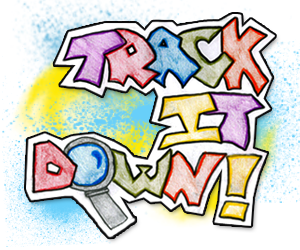Community Cohesion
Community cohesion describes the ability of all communities to function and grow in harmony together rather than in conflict. It aims to build communities where people feel confident that they belong and are comfortable mixing and interacting with others, including people from different ethnic backgrounds or people of a different faith.
The Community Cohesion Department at Wrexham Council work to a Community Cohesion Strategy and that strategy focuses on what we the people of Wrexham have in common rather than our differences. ‘One Wrexham’ promotes activities to encourage people to have a greater understanding of the various communities that make up Wrexham.
For more information please visit Community Cohesion
Two examples of the work that ‘One Wrexham’ has developed are the ‘One Wrexham Charter of Belonging’ and the ‘Hate Crime – Third Party Reporting Project’.
Hate Incidents
What is a Hate Incident
Hate incident is when someone attacks another person verbally, via mail, email or physically and the incident is based on their dislike of an individual or people of a particular group.
Anyone could be a victim of hate crime.
Everyone can have a laugh and a joke but it is important to realise that if you are intending to hurt and upset someone because they may be;
Disabled
Of a different race or ethnicity
Of a particular Faith or Belief
Of a particular Sexual Orientation
A Transvestite or Transgender identity
Then you are breaking the law.
The definition of a Hate Incident is:
Any offence which the victim or any other person feels to be motivated by a preconceived dislike of a group.
Racism can be linked to:
 Any ethic background
 Any nationality [including Welsh and English]
 People from overseas
 Gypsy and Travellers
Disability can be linked to people with?
 Mental Health
 Physical Disabilities
 Sensory Disabilities
 Learning Disabilities
Faith or Belief can be linked to people
Any faith at all, but for example:
 Christian
 Muslim
 Jewish
 Buddhist
 Hindu
 Sikh
Any Belief at all, but for example:
 Humanistic
 No belief in anything at all
Homophobic can be linked to
 Gay
 Lesbian
 Bisexual
 Heterosexual
 Transvestite
 Transgender
Some examples of hate incidents are:
• spitting at people
• telling offensive jokes to people to hurt them
• physical attacks
• verbal abuse
• damage to property
• offensive letters, leaflets, emails and texts
• bullying and threats
• abusive gestures
Reporting a hate Incident
You can report a hate incident at Wrexham Police Station, to any Police Officer or at a number of different community venues in Wrexham, know as Third Party Reporting Centres
What happens when I make a report?
Staff at the Third party reporting centres have been trained to take your information. A special form has been developed and you will be asked a number of questions. All the information you provide will be kept confidential.
Will my information be shared with anyone else?
We want to make sure that you receive as much help and support as possible but it is important that you decide what you want us to do.
You will be asked if we can share your information with helping agencies. We will only inform those agencies for whom you give us permission.
If you do not allow us to share your information it will only be used to help us develop the overall project.
What happens when the victim doesn’t speak English or Welsh?
If the victim does not speak English or Welsh they can still report at some Third Party Reporting Centres – translated information has been provided in Polish and Portuguese.
Please note: interpreter support is available at all statutory agencies taking part in the project e.g. Wrexham County Borough Council Area Housing Offices, North Wales Police.
Support agencies
Victim Support
We are the national charity giving free and confidential help to victims of crime, witnesses, their family, friends and anyone else affected across England and Wales.
One Wrexham’s – Charter of Belonging
The One Wrexham Charter of Belonging is a simple certificate setting out a statement of values and commitment. Statutory agencies, voluntary and community organisations and businesses can “sign up” to the Charter thereby making a public statement of commitment to the values it expresses. While the Charter is not a legally binding agreement, over time we hope it will become a symbol of local good practice in relation to cohesion and equalities issues.
Children’s Charter of Belonging
A group of children from St Mary’s primary school in Wrexham worked together to design a children’s version of the Charter which schools across the county borough have signed up to. Why not check that your school has signed up to it?








